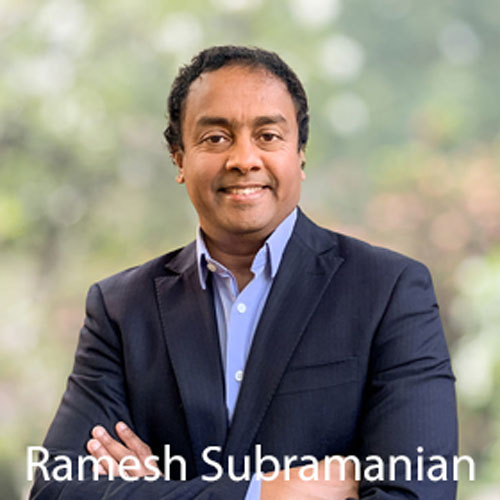What this editor is terming the “WuXi situation” relates, apparently, to concerns about national security and foreign influence in critical industries, particularly those involving biotechnology and pharmaceuticals.
Wuxi AppTec operates in the biopharmaceutical sector, providing services such as drug development, manufacturing and testing. This so-called situation is part of a broader series of investigations into Chinese investments and operations in sensitive industries within the United States.
The scrutiny of WuXi AppTec is a practical manifestation of the concerns that the Biosecure Act seeks to address. By highlighting the potential risks associated with foreign involvement in the US biotech sector, the Wuxi situation underscores the need for the legislative measures proposed in the Act.
Essentially, the Biosecure Act aims to create a regulatory framework that would prevent or mitigate the kinds of risks exemplified by WuXi AppTec’s operations in the US.
In short, the Wuxi situation illustrates the types of biosecurity risks that the Biosecure Act is designed to counteract. It highlights the importance of protecting critical industries from foreign influence, ensuring the security of supply chains and safeguarding sensitive data and intellectual property.
What’s good for the goose?
Wishing to delve a little deeper and get some insight from other “foreign” companies offering contract services to the global pharmaceutical industry, Dr Kevin Robinson reached out to a couple of Indian CDMOs for comment.
“The Biosecure Act has certainly garnered attention in the industry,” said Alex Del Priore, Senior Vice President of Manufacturing Services at Syngene International. “However, the actual trend here is one of clients looking for supply chain security, risk mitigation and robustness.”
More anecdotally, Alex added: “I’ve met more C-suite pharmaceutical executives visiting India for the first time in the last 18 months than I have in the preceding decade … so there’s a shift under way."
"The perception right now is that India is competitive in terms of capability and problem solving abilities. Where else can you get the same scale and breadth of therapeutic indication capabilities from discovery to commercial?”
When I asked Ramesh Subramanian, Chief Commercial Officer at Aragen Life Sciences, whether the WuXi situation represents an opportunity for Indian CMDOs, he was enthusiastically positive.
“First,” he said, “outsourcing R&D activities is now a must have strategy rather than a good-to-have one compared with a few years ago. More and more companies have understood the importance of working with suppliers to advance their R&D programmes.”

“At the same time,” he added, “the COVID-19 pandemic and the ongoing issues with Chinese service providers has made it imperative for organisations to consider geodiversification as part of risk hedging to ensure uninterrupted operations."
"India offers several advantages that make it an ideal alternative for an innovator to expand its global footprint. This includes a large English-speaking population, high-quality science, many US FDA-approved manufacturing facilities and an infrastructure that meets global standards. We are already seeing increasing interest in our services in the past few months.”
Answering the same question, Alex noted: “Overall, the industry is experiencing a significant shift in manufacturing locations, gravitating towards the east. Additionally, lessons from the pandemic emphasise the importance of supply chain resilience, resulting in a trend towards risk diversification.”
“The China plus one strategy illustrates this approach, such that companies add secondary locations for supply chain robustness. This shift encompasses various aspects including research, innovation, development and manufacturing, presenting significant opportunities for India.”
“The opportunity for Syngene is that we have almost unique large and small molecule capabilities from discovery to commercial. So, as a full-service provider, we are a very attractive partner."
"The other important aspect is that we’ve now been supplying a monoclonal antibody (Librela/bedinvetmab) to Zoetis for 2 years, which has accelerated interest from Western biotechs for commercial biologics supply.”
Can Indian CDMOs capitalise on the situation?
If needed, Ramesh is confident that Indian CDMOs are well prepared to meet any uptick in business. “Not just because of the WuXi situation,” he explains, “but because of the increasing demand for outsourcing in the last few years and the current geopolitical environment.”

“During the last few years, Indian CDMOs have been continuously making strategic investments, expanding capacities and adding new capabilities to meet the growing requirements of its global customers."
"For example, Aragen recently commissioned a new formulation development facility in Hyderabad, set up a biologics manufacturing facility in Bangalore and expanded its drug substance capacity. We’ve also announced a CAPEX plan to invest $250 million during the next 5 years to meet the growing requirements of our partners.”
In the same vein, Alex tells me that Syngene has proactively responded to market demands by expanding its capacity in India and further aligning itself with the industry's evolving needs.
“Our assets in India, with approximately 8500 employees (predominantly in science and research roles), showcase our commitment to innovation and growth. In the CDMO space, our facilities are US FDA, EMA and MHRA approved and, in terms of R&D discovery, we are by far the biggest player in India and among the largest in the world.”
He continues: “In terms of immediate expansions, I can break these down by division. For discovery, we are continually building new capabilities and our PROTACs group is now amongst the largest in the world, with nearly 500 scientists."
"We have also purchased 20 acres of land in Hyderabad and that’s going to be a site for our newest science park. And, although in development and manufacturing we have a 40-acre site in Mangalore, that’s only about 25% built-out, so we have a lot of room to scale and grow for clients.”
Biologics, he comments, is the fastest growing area of the business. “We have the research stage capabilities to discover new biologic entities such as antibodies and optimise/engineer them as needed. But behind that, in development, we have a strong pipeline of clients and that’s why we’ve taken the decision to invest and expand.”
The fall of Chinese CDMOs?
It’s generally thought, if not said, that the movement towards derisking and diversifying supply chains within the biopharma industry could potentially lead to a reassessment of CDMO and manufacturing activities in China. “But,” emphasises Alex, “it’s not just an American issue; we’re getting enquiries from both US and European companies.”

“This trend has its origins in the pandemic and, as an industry, we want increased resilience in our supply chains. The other aspect is simply trust and we have built a very strong reputation for capabilities and delivery."
"We’re proud of our high client retention rate; we work with 11 of the top 15 biopharma companies in the world and most of them are multiyear relationships. In fact, in the case of BMS and Amgen, these multinationals have established dedicated facilities on Syngene premises that are managed and operated by us.”
In conclusion
Driven by market needs, two key aspects are at play: genuine innovation and biosimilars (biologic equivalents of generics).
These biosimilars, often modified versions of products created by originator companies years ago, are instrumental in terms of cost reduction within global healthcare systems and pave the way for reinvestment in newer technologies and enhanced patient care.
“This unexpected innovation trend was initially observed in sectors such as ours,” notes Alex: “Fostered by partnerships with global companies focused on genuine innovation, contract research organisations and contract development and manufacturing organisations are at the forefront of this innovation wave.”
